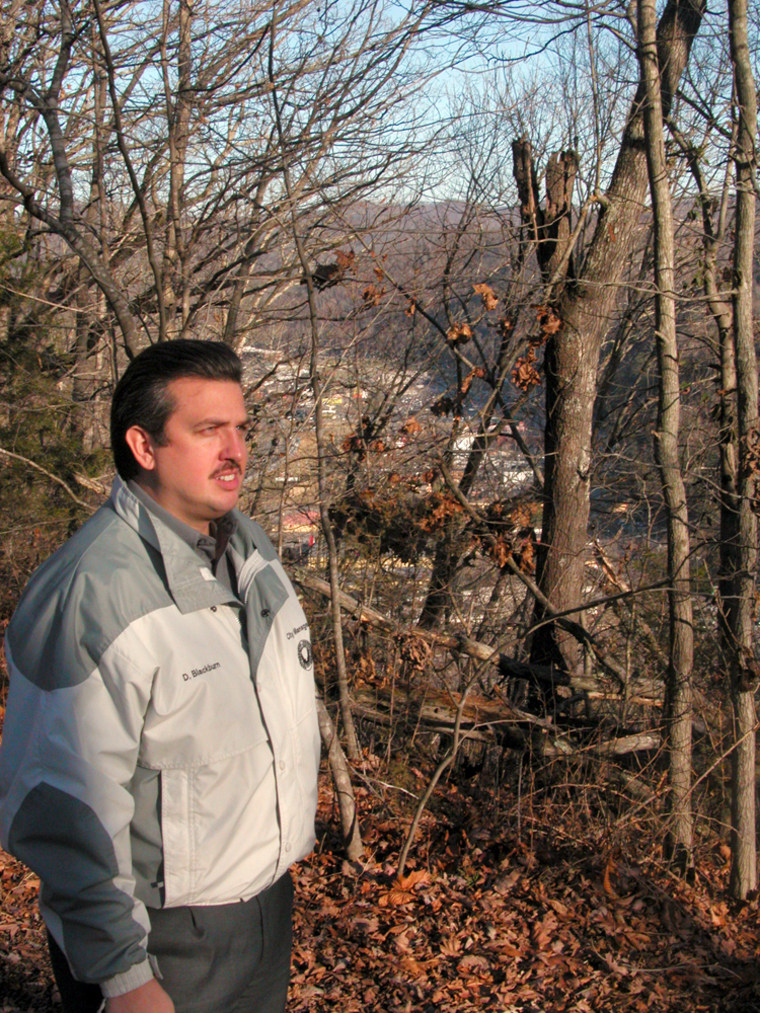The towering mountains that frame this Appalachian town have been a hindrance to growth, forcing homes and businesses to crowd together side by side on precious little flat land.
That could change under a plan by Pikeville leaders who recruited a coal company to flatten two mountaintops to make room for the town of about 6,300 to expand.
Appalachian towns like Pikeville that have exhausted all useable land have no choice but to look to the mountaintops, City Manager Donovan Blackburn said.
“If you look at the amount of land that is developable right now, there is virtually none,” Blackburn said. “This will be a tremendous benefit.”
However, mountaintop removal coal mining has come under heavy attack from some environmentalists who say the practice takes such a heavy toll on nature that it should be banned. In the procedure, mountaintops are removed with explosives and heavy equipment to expose coal seams. The excess dirt and rock are dumped into hollows, creating additional flat land.
The process requires large-scale blasting and removal of trees, soil and rock, which the environmental group Kentuckians for the Commonwealth says destroys wildlife habitat and contaminates streams with sediment and harmful mine runoff.
From car lots to prisons
Pikeville wouldn’t be the first Kentucky town to look to mined land for expansion. Cities throughout the mountain region have used the reclaimed properties for everything from industrial parks to airports.
In nearby Hazard, housing developments, car lots and even a hospital have sprouted up on such property. The Federal Bureau of Prisons built a high-security penitentiary on a former mountaintop removal site outside Inez. And Prestonsburg has a golf course on mined land.
Ordinarily, coal companies are required under federal law to restore mountains to the original contour, said Tom FitzGerald, head of Kentucky Resources Council. But an exception in the law allows mining companies to leave the land flat when that better serves post-mining purposes.
Mike de Bourbon, an attorney who heads the local airport’s governing board, said the board reached a deal with Central Appalachia Mining of Pikeville to mine in the city’s southern outskirts. The airport board owns the surface land, but not the coal beneath it.
The deal would create about 800 acres of flat land suitable for various types of development. Mining has already begun on that project, which will net the airport as much as $4 million in royalties, de Bourbon said.
Donovan said Pikeville officials also have tentatively agreed on a deal with the company to mine a portion of land on the city’s west side to flatten land for baseball and soccer fields.
Jim Slater, president of Central Appalachia Mining, did not return a call seeking comment.
Developing an advantage
Donovan said the projects are not intended to be moneymakers for local government even though they involve the sale of coal.
“There will be some money generated on the royalties, but that money will go back into the projects,” he said.
Undeveloped flat land is rare in many Appalachian towns. Donovan said creating flat land is imperative for Pikeville to continue growing.
“Only 16 to 17 percent of our property is flat and can be developed,” he said. “When you have a project like this, it gives us an advantage.”
